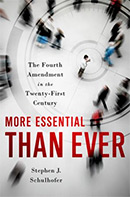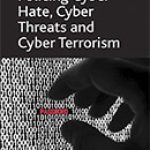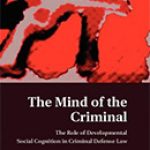More Essential Than Ever: The Fourth Amendment in the
Twenty-first Century

Author: Stephen J. Schulhofer
Publisher: New York: Oxford University Press, 2012. 199 p.
Reviewer: Craig Hemmens | November 2012
The Fourth Amendment has governed how the police conduct searches and seizures since its adoption in 1791; the amendment has been applied to state action (and local law enforcement agencies, those most responsible for the vast majority of searches and seizures) since it was incorporated by the United States Supreme Court in Wolf v. Colorado (1949). The Amendment itself contains just over fifty words, but each word has tremendous importance. It forbids “unreasonable” searches and seizures, but what is unreasonable? It requires the existence of “probable cause,” but how is that defined? It states that the people have the right to be “secure in their persons, houses, papers, and effects,” but how are these defined and what does “secure” mean exactly? Applying the generalities of the Fourth Amendment to the actions of the police and determining when the Fourth Amendment has been violated falls, in the end, to the Supreme Court. Many rail against the supposed illegitimacy of “judicial activism” and judges who “legislate from the bench,” but what can the justices do but try to apply these fifty-odd words to situations the Founding Fathers could never have imagined? From automobiles to cell phones to GPS and thermal imaging, today’s world is far different from 1789.
In More Essential Than Ever: The Fourth Amendment in the Twenty-First Century, noted Fourth Amendment scholar Stephen J. Schulhofer has attempted to make the case that, properly applied, the Fourth Amendment remains a vital safeguard against police overreaching and that the Supreme Court has consistently misinterpreted the original meaning of the Fourth Amendment. Where many critics of the Supreme Court have argued that the Court has failed to remain true to the original intent of the Fourth Amendment and consequently created rights where none exist, Schulhofer argues that the Court’s failure to follow the original meaning of the Fourth Amendment has actually restricted its protections against police misconduct. He stakes out what he calls an “adaptive originalism” which is focused not so much on defining the Fourth Amendment based on what the Founders knew, but on defining it based on the principles it espouses—he argues this is the distinction between a focus on rules versus a focus on principles.
While I am not convinced his terminology is meant to do much more than annoy originalists, his point is well taken. Originalists such as Justice Antonin Scalia should take the warrant and probable cause requirements seriously, as they are a significant part of the text of the Fourth Amendment, but repeatedly they ignore their import in the service of upholding police activity that ignores the first principle of the Fourth Amendment—that judicial oversight is a requirement, based on the language of the Amendment and history up to its passage.
Schulhofer points out what we are all well aware of—modern society is vastly different from the world the Founders knew. Technological advances, the development of professional police forces, and changes in the makeup of society have all played a role in changing America and the criminal justice system. While the Supreme Court has remained reasonably (pun intended) steadfast in its protection of people’s homes, they have repeatedly proven willing to turn a blind eye to police practices that occur outside the four walls of the home. Schulhofer clearly yet concisely (no mean feat in this area of constitutional law) details how the Supreme Court in the past thirty years has used a combination of formalistic reasoning that ignores changes in society and a variety of exceptions to the Fourth Amendment’s warrant and probable cause requirements to expand police power in public spaces. These include the doctrine of third party consent (the idea that if an individual shares private information, such as phone records or bank statements with a third party, there is no expectation of privacy in that information if the government seeks it) and administrative searches (such as highway checkpoints or drug tests which may be conducted without individualized suspicion because their primary purpose is ostensibly the promotion of public safety and not the investigation of criminal activity).
Schulhofer also devotes considerable attention to the impact of the war on terror and how it has increased the willingness of many Americans to cede their right to be secure from unwarranted invasions of their privacy to the police. The familiar refrain “I have nothing to hide; the Fourth Amendment protects only criminals with something to hide” is often heard in the post 9-11 era. Schulhofer argues cogently that the Fourth Amendment was not created to protect criminals; rather it was to protect citizens from government overreaching. To treat the Fourth Amendment as reserved for the wrongdoer is to misconceive its intent. He insists that the primary purpose of the Fourth Amendment is to ensure that individuals retain their security against governmental oppression and overreaching. Individual security is a key aspect of a vibrant democratic society. According to Schulhofer, unsupervised police surveillance and investigation may not bother the average citizen who holds widely accepted views, but such governmental overreacting weighs heavily upon members of minority groups and those whose views are outside the mainstream. This has the negative consequence of chilling speech, religious activity, political activity, and creativity, and this weakens the core values of a democratic society.
There have been many law review articles and books written about the Fourth Amendment and the convoluted doctrines the Supreme Court has developed in its efforts to apply those fifty or so words to modern society. In More Essential Than Ever: The Fourth Amendment in the Twenty-First Century, Stephen Schulhofer has created an excellent survey of current Fourth Amendment issues and a spirited, convincing critique of recent Supreme Court decisions and doctrine that should be read by laypersons, scholars, and students of criminal justice and criminal procedure. It is a significant addition to the Oxford University Press Inalienable Rights series, which is itself a tremendous resource.
References
Wolf v. Colorado, 338 U.S. 25 (1949).
Craig Hemmens is Department Head and Professor in the Department of Criminology and Criminal Justice at Missouri State University.


